
The Bulgarian Constitutional Court has ruled that the term ‘gender’ according to the Constitution should be understood only in its biological sense.
The decision was taken by 11 votes in favour and one vote against.
This resolves a dispute as to how the concept of “gender” is to be imported from international law into Bulgarian law.
This question arose three years ago when the ruling GERB party refused to move the Istanbul Convention for ratification in parliament.
The Istanbul Convention uses the concept of “gender”, which the convention regards as stereotyping of both sexes and can consign women to traditional roles. But ‘gender’ can also be used to assert there are no real differences between men and women and that men and women can ‘change’ gender.
The court said the legal status of transgender people can be further resolved through changes in legislation. Bulgarian institutions cannot be obliged to accept the self-determination of citizens to a sex that is different from their biological one.
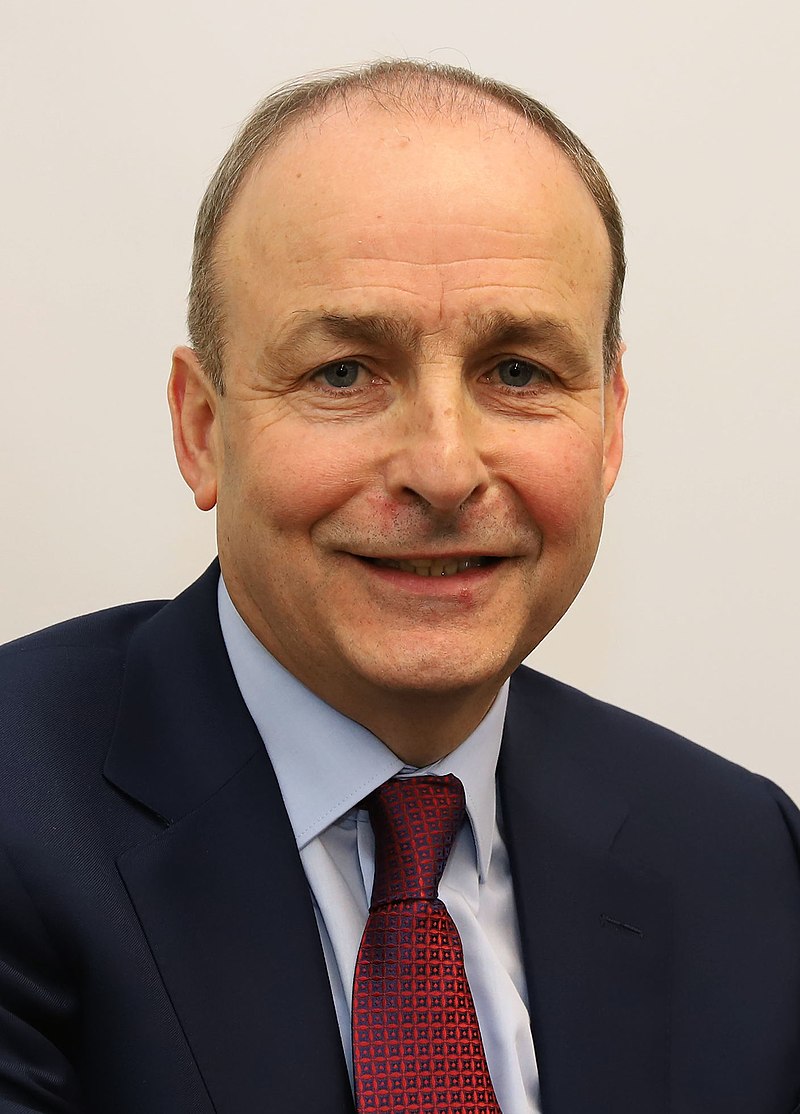
The Taoiseach, Micheál Martin, has expressed his ’empathy’ for international commercial surrogacy even though almost every European country bans it on the grounds that it exploits women and commodifies children.
He was responding in the Dail to questions from deputies who support changes to Irish law to facilitate and encourage such arrangements.
Patrick Costello of the Green Party said he had been at a protest outside Leinster House by a number of parents of children born through commercial surrogacy who are “looking for the most basic of rights for those children to be recognised, namely, the right to a family”.
Commercial surrogacy usually involves paying a woman thousands of euro to carry a child on behalf of the commissioning couple or single adult.
Children’s Minister, Roderick O’Gorman, said the Government “must act” and said Justice Minister, Helen McEntee, would be bringing forward a proposal for a special Oireachtas committee on the matter.
Fianna Fail deputy, Christopher O’Sullivan made a plea to the Taoiseach to ensure that international surrogacy would be included in an upcoming assisted human reproduction Bill.
The Taoiseach replied that he was “very empathetic with the issue of international surrogacy”.
“A memorandum will be brought to the Government from those Ministers embracing their Departments with legislative proposals to deal with these issues. The purpose is to ensure that the rights, interests and welfare of all persons involved – children born through surrogacy, intending parents and surrogacy parents – are considered,” he said.

The HSE has admitted that they are not collecting data on complications associated with telemedicine, at-home abortions. The admission comes after reports of a significant increase in ambulance call-outs in Britain, related to women experiencing physical complications after taking abortions drugs at home.
The HSE was forced to comment on the situation in Ireland after Fianna Fáil TD Éamon Ó’Cuív requested information on the issue in the form of a Parliamentary Question to the Minister for Health.
Since March 2020, following the Covid-19 outbreak, it has been possible in Ireland to access an abortion, before 12 weeks gestation, without having any face-to-face contact with a health professional prior to the procedure. The Minister for Health has also indicated that telemedicine home abortions may continue after Covid-19 restrictions are fully lifted. This flies in the face of a commitment given by his predecessor that ‘DIY’ at home abortions would immediately cease as soon as the Covid outbreak ended.

Over ninety incidents were reported to the State Claims Agency related to adverse effects after an abortion. More than 13,000 terminations took place during the first two full years of the country’s new, liberal abortion regime.
The information came to light this week following a Parliamentary Question from Carol Nolan TD to the Minister for Health.
Commenting on the news, Eilís Mulroy of the Pro Life Campaign said the revelation demonstrates the “numerous risks” associated with abortion in Ireland.
“Whilst the details of these 94 claims are of yet unknown, the evidence suggests that adverse effects from abortion are happening and are being dealt with quietly behind closed doors. It is more important than ever to sound the alarm on the existence of dangerous side-effects of abortion,” she said.
“The Minister for Health has an obligation to disclose the precise details of the adverse events that have occurred in the interests of transparency and ensuring proper oversight of the new abortion law. The Government’s Three Year Review must take an objective look at these events and the other issues that have come to light since the law was introduced”, Ms. Mulroy concluded.
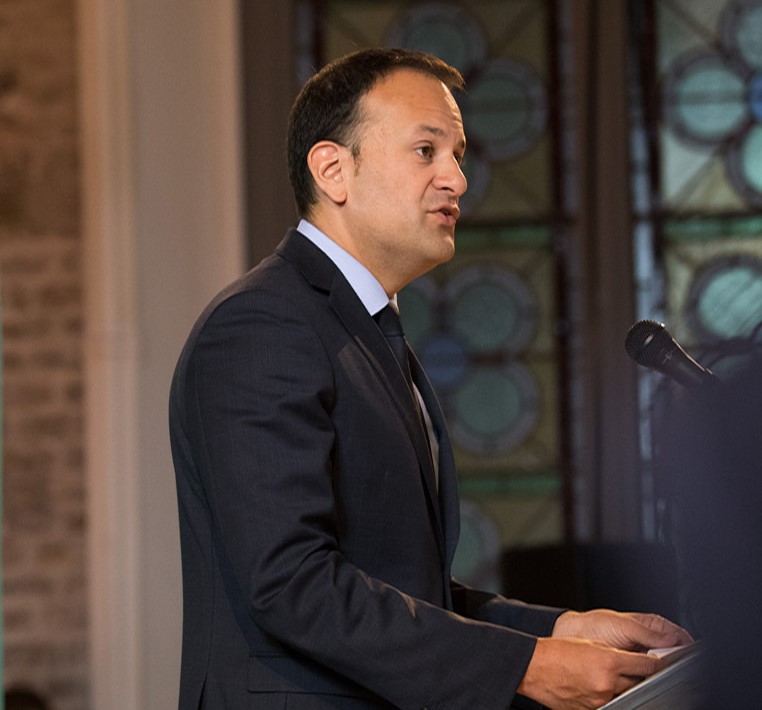
The Tanaiste has acknowledged the host of thorny issues impacting the rights of women and children that would occur if the State were to facilitate a regime of international commercial surrogacy.
In reply to questions in the Dail, Leo Varadkar said legislation on assisted human reproduction and international surrogacy is long overdue. However, he added that there are “complex legal and ethical questions that arise in respect of for-profit surrogacy services, children being moved from other countries to this country and the right to know who one’s biological parents are”.
“There are many very complicated ethical issues that have to be resolved, particularly in the context of our difficult history in respect of adoption and women giving up their children and so on”, he said.
The Tanaiste said there has been substantial work done on the issue since the formation of the Government, and in the coming weeks a memorandum will be brought to Cabinet on how to consider the issues and introduce any legislative change.
“It will propose the establishment of a time-limited special joint Oireachtas committee to consider the issue, including the issues arising from commercial international surrogacy, and to report with recommendations”, he said.
https://www.kildarestreet.com/debates/?id=2021-11-02a.53&s=surrogacy#g82
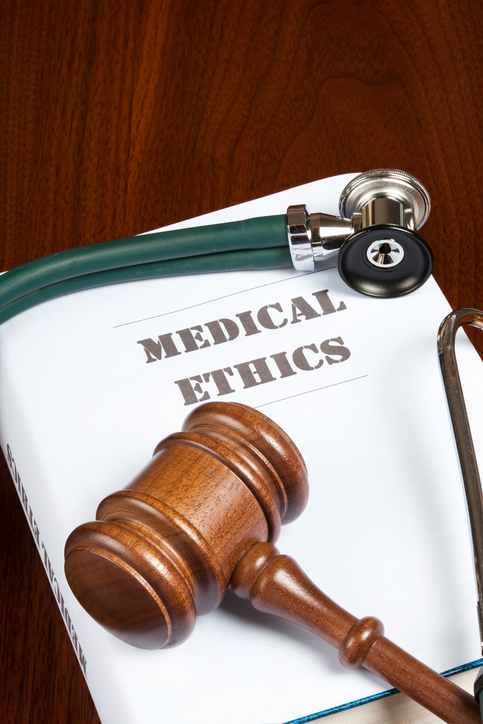
The U.S. Supreme Court won’t hear a bid by a Catholic hospital to avoid a lawsuit over its refusal to perform a hysterectomy on a transgender patient who sought the procedure as a part of an attempted sex-change from female to male.
Catholic hospitals do not remove healthy organs for non-medical reasons.
The justices turned away an appeal by Mercy San Juan Medical Center, a Sacramento-area hospital owned by Dignity Health, and let stand a lower appeals court ruling that revived the lawsuit after the original trial judge had thrown it out on religious freedom grounds.
This means the case will proceed to trial in California, but the outcome may yet be appealed.
The hospital said it does not discriminate against transgender patients, but does not allow its facilities to be used for a certain procedures including abortion, sterilization and euthanasia, when not medically necessary.
Author and senior fellow at the Discovery Institute’s Center on Human Exceptionalism, Wesley J Smith said this is a “potential catastrophe” for freedom of religion.
“Bottom line: If the jury returns a seven-figure verdict against Dignity Health — and this being the most woke state in the union, it well could — the verdict will declare open season on Catholic health care for trial lawyers,” he added.
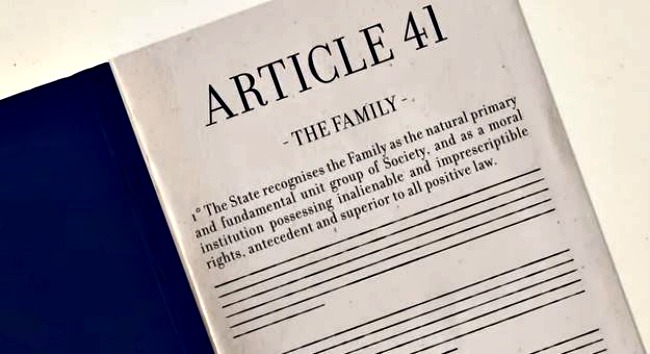
The Labour Party says the legal definition of ‘family’ should be changed to include cohabiting couples and other family units that are not based on marriage. Leo Varadkar has made a similar call in the past.
Even though same-sex couples are now allowed to marry, they believe that ‘marriage equality’ needs to become ‘family equality’. Currently, the Constitution pledges the State to protect marriage, but not the family in general.
Labour TD, and spokesperson on children, Ivana Bacik says there is a “a special bubble for families based on marriage”, and that this excludes “other households and other forms of family from Constitutional protection.”
She says the practical impact of this was recently highlighted in the case of John O’Meara from Co Tipperary.
“[His] long-term partner and mother of his children, Michelle Beatty, had died tragically.
“Because they had never married, despite having co-habited for a long, long time, he could not be entitled to a Survivors Pension.
“So his relationship was not recognised by the State – whereas the State in fact does recognise co-habitation for the purpose of depriving people of benefits in other cases in our social welfare code.
“So there’s inconsistency there, but there’s also an unfair discrimination against co-habiting couples”.
“The reality in Ireland today is that we have 150,000 households, according to the last Census, based on a co-habiting couple who are not married – and 75,000 of those households have children.
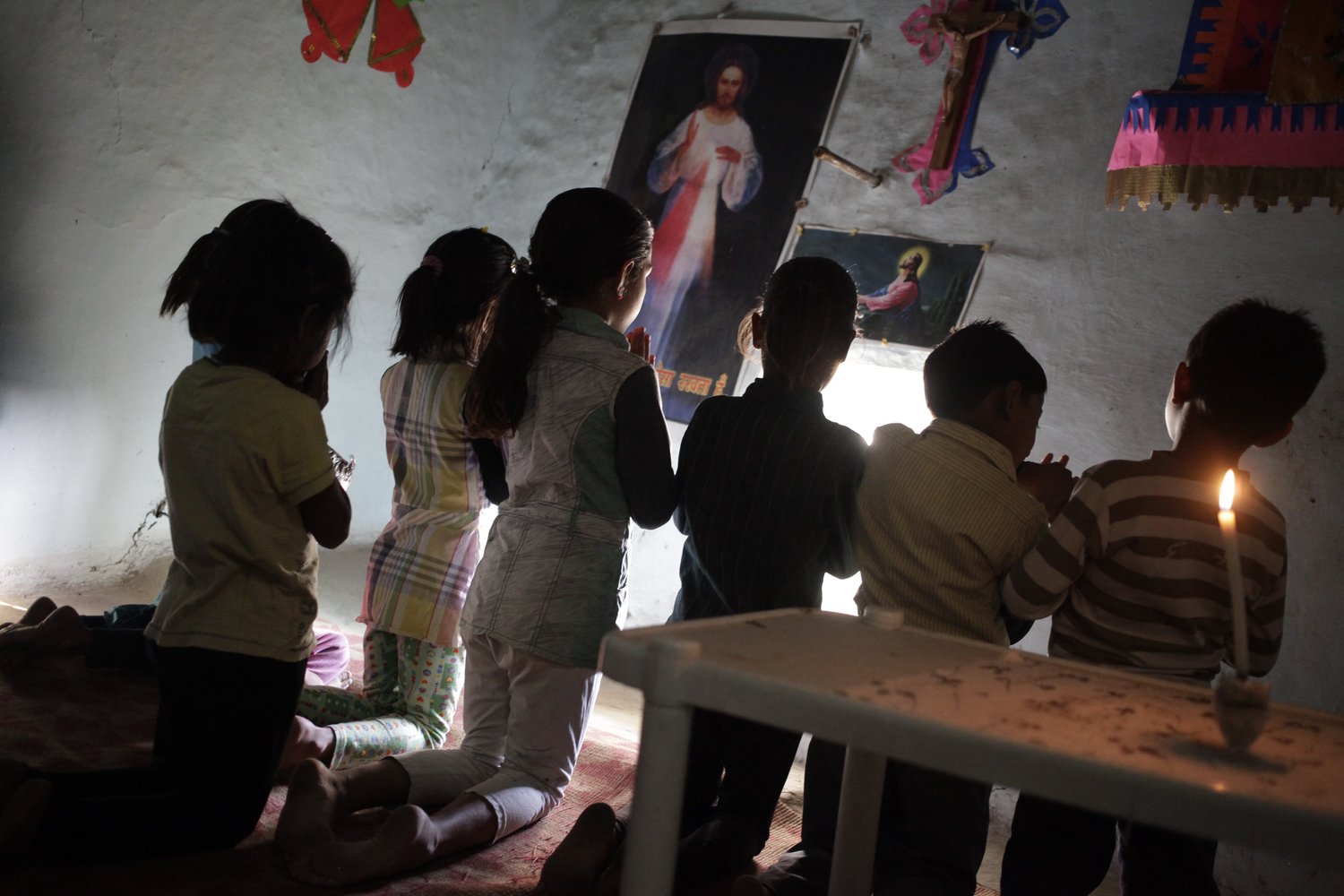
Christians in the central Indian state of Madhya Pradesh are living in fear after radical Hindu activists stepped up a campaign for the reconversion of indigenous people.
“Our people are frightened as radical Hindu groups are pressurising the indigenous Christians to give up their faith in Christianity,” Father Rocky Shah, the public relations officer of the Catholic Diocese of Jhabua, told Aid to the Church in Need.
In Jhabua, a district where indigenous people are in the majority, Christians comprise 4 percent of the population. In the state at large, Christians make up less than one percent of the population of 71 million.
He said: “The Hindu activists are running campaigns demanding action against priests and pastors who are leading the Christian communities and they threatened to demolish our churches under the false charge that they are built illegally on the lands of indigenous people”.
The Hindu activists’ plan to destroy churches in the district, however, was frustrated by timely action from the district administration. “More than 300 police were deployed to guard the Catholic cathedral and other church structures,” following the threats from the radical Hindus, the priest says.
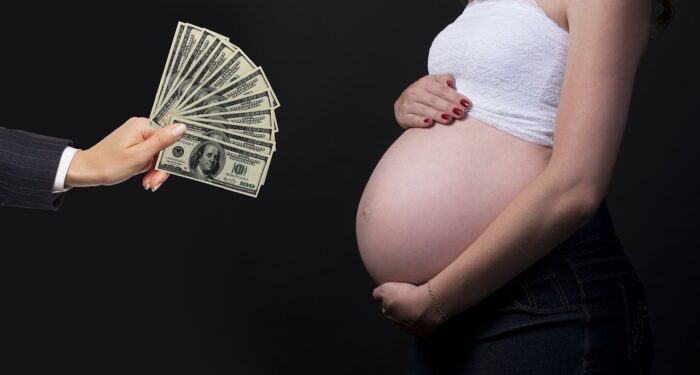
It will be given four months to complete its work.
The committee will be provided with an issues paper drafted by officials in the Departments of Justice, Health and Children, in consultation with relevant ministers and their officials, to assist the committee in its deliberations.
The recommendations of the committee will then be considered by the Minister for Health as the Assisted Human Reproduction Bill progresses through the legislative process.
It is expected that any necessary legislative provisions which arise out of the committee’s examination will be inserted into the Assisted Human Reproduction Bill at committee stage.
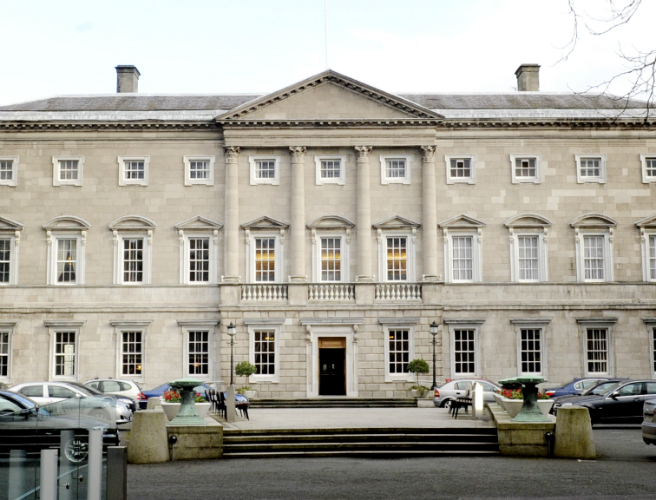
Elements of the Birth Information and Tracing Bill, designed to help adopted people find their biological parents, are incompatible with GDPR, an Oireachtas committee heard today.
In separate opening statements to the Oireachtas Joint Committee on Children, Equality, Disability, Integration and Youth, solicitors Simon McGarr and Fred Logue told TDs and Senators that the bill also seeks to legislate for legal rights that are already covered by data protection laws.
Mr McGarr takes issue with the requirement for a mandatory information session in cases where a person seeks their birth certificate, but the parent has registered a “no contact” preference.
In his statement, M he states: “There is no legislative provision setting out what the purpose of this restriction would be as it is acknowledged that the record will be granted in all cases.”
He points out that any entity, including State entity, must provide any personal data it holds on an individual, upon their request.
Mr Logue describes the bill as “misconceived”.
“From my reading, the bill is drafted from the point of view that it is giving people a new right to access information that they currently don’t enjoy.
“However this point of departure is misconceived because adopted people already have a right to access to their information,” he will tell the committee.
Mr Logue said that the barriers to access are practical rather than legal because in many cases there is not enough information for adoptees to identify their own birth cert.